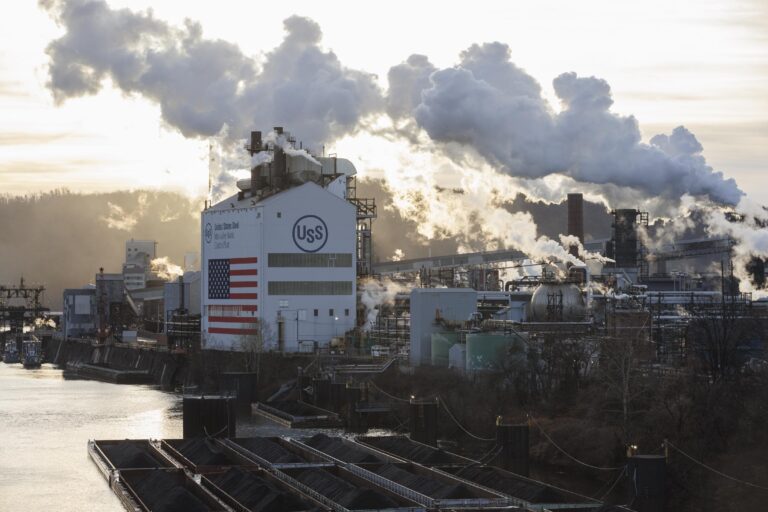Rising Tensions Over U.S. Steel Tariffs Strain Japan-U.S. Relations
The longstanding alliance between Japan and the United States is currently facing significant strain due to recent U.S. trade policies targeting Japanese steel exports. The U.S. government’s introduction of tariffs and restrictive measures has provoked strong backlash from Japanese officials, who describe these actions as unjustifiable and harmful to the robust economic and strategic ties shared by the two nations. This dispute exemplifies the increasing difficulties in maintaining smooth bilateral relations amid a complex global trade environment, raising questions about the future trajectory of their cooperation.
Japan’s Growing Discontent Over U.S. Steel Restrictions
Japanese authorities and steel industry executives have intensified their criticism of the U.S. tariffs, which they argue unfairly penalize Japan despite its adherence to international trade standards. As a pivotal security ally in the Indo-Pacific, Japan finds its economic interests jeopardized by these barriers, which limit access to the lucrative American steel market. Industry voices warn that such protectionist policies threaten to erode Japan’s competitive edge and disrupt decades of mutually beneficial trade relations founded on trust and cooperation.
Major points fueling the dispute include:
- Unequal Burden: Japanese steel producers contend that the tariffs disproportionately affect their exports, despite Japan’s compliance with World Trade Organization (WTO) rules.
- Broader Economic Consequences: The tariffs risk harming interconnected sectors such as automotive manufacturing and infrastructure development in both countries.
- Strained Diplomatic Ties: The conflict threatens to spill over into strategic areas, potentially weakening defense collaboration and regional security efforts.
| Steel Category | Export Volume from Japan (2023) | Applied Tariff Rate |
|---|---|---|
| Automotive-Grade Steel | 1.2 million metric tons | 25% |
| Industrial Steel | 800,000 metric tons | 25% |
| Specialty Steel | 500,000 metric tons | 10% |
Economic Repercussions for Japan’s Steel Sector and Trade Dynamics
The Japanese steel industry is confronting considerable economic hurdles as a result of the U.S. tariffs, which have disrupted established trade patterns and increased operational costs. These restrictions threaten the sustainability of steel manufacturers who depend heavily on the American market, potentially leading to workforce reductions and diminished investment in cutting-edge steel production technologies. The ripple effects extend beyond steel, impacting supply chains and related industries.
In response, Japan has adopted a multi-pronged strategy to counterbalance these challenges, including:
- Expanding Market Reach: Targeting emerging markets in Southeast Asia and the European Union to lessen reliance on U.S. demand.
- Diplomatic Negotiations: Engaging U.S. counterparts to seek revisions of tariff policies and restore equitable trade conditions.
- Domestic Industry Enhancement: Introducing subsidies and incentives to promote innovation and improve competitiveness within the steel sector.
| Economic Aspect | Effect on Steel Industry |
|---|---|
| U.S. Tariffs | 25% decline in exports |
| Research & Development Investment | Anticipated 15% growth |
| Employment Levels | Possible 10% reduction in workforce |
| New Export Markets | 30% increase in ASEAN region |
Diplomatic Challenges Amid Trade Disputes
The imposition of steel tariffs by the U.S. has sparked notable diplomatic friction with Japan, a cornerstone ally in the Asia-Pacific security architecture. Japanese policymakers and industry stakeholders have condemned the tariffs as excessive and detrimental to the trust underpinning their bilateral relationship. The steel sector’s downturn threatens to cascade into broader manufacturing industries, potentially undermining not only economic ties but also joint security initiatives.
Tokyo has formally communicated several concerns to Washington, including:
- Breaches of Trade Agreements: Allegations that the tariffs contravene existing accords designed to uphold fair economic exchange.
- Endangerment of Security Cooperation: Worries that escalating tensions could impair collaborative defense efforts.
- Risk of Retaliatory Actions: Potential countermeasures that might disrupt wider U.S.-Japan partnerships.
| Affected Sector | Possible Consequence | Japan’s Response |
|---|---|---|
| Steel Manufacturing | Export volume decline | Formal diplomatic protests |
| Automobile Industry | Supply chain interruptions | Policy realignments |
| Security Collaboration | Reduction in joint military exercises | Calls for renewed dialogue |
Advocating for Constructive Dialogue and Equitable Trade Practices
Trade experts and economists stress the critical importance of enhanced communication channels between Japan and the U.S. to resolve the steel tariff dispute. They warn that without transparent and ongoing dialogue, the bilateral relationship risks further deterioration, which could negatively impact both economic prosperity and regional security. Emphasizing the necessity of fair and balanced trade policies, analysts argue that such measures are essential to maintaining mutual respect and economic stability, especially given Japan’s strategic role in Indo-Pacific security.
Proposed initiatives to rebuild trust and cooperation include:
- Creation of a bilateral task force dedicated to overseeing steel import regulations and ensuring compliance.
- Regularly scheduled consultations to proactively address trade concerns and prevent escalation.
- Development of tariff frameworks that fairly reflect market conditions and the strategic alliance’s imperatives.
| Suggested Initiative | Anticipated Benefit |
|---|---|
| Joint Trade Oversight Committee | Greater transparency and equitable enforcement |
| Scheduled Bilateral Consultations | Early resolution of disputes |
| Balanced Tariff Policies | Strengthened economic partnership and trust |
Conclusion: Navigating the Future of the Japan-U.S. Alliance
The ongoing conflict over U.S. steel tariffs underscores the delicate balance between protecting national economic interests and preserving vital strategic alliances. Japan, a crucial security partner for the United States, has expressed firm opposition to what it views as unfair trade practices, signaling potential hurdles ahead in both diplomatic and economic collaboration. The manner in which Washington and Tokyo address and resolve this dispute will be pivotal in shaping the resilience and depth of their partnership amid an increasingly unpredictable global landscape.







